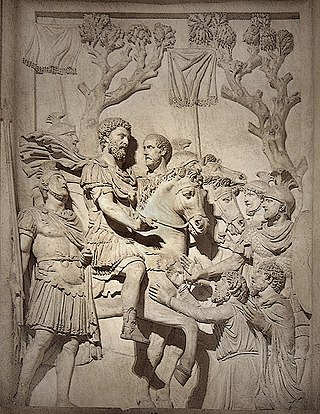Related Research Articles

Breton is a Southwestern Brittonic language of the Celtic language group spoken in Brittany, part of modern-day France. It is the only Celtic language still widely in use on the European mainland, albeit as a member of the insular branch instead of the continental grouping.

The Celtic languages are a group of related languages descended from Proto-Celtic. They form a branch of the Indo-European language family. The term "Celtic" was first used to describe this language group by Edward Lhuyd in 1707, following Paul-Yves Pezron, who made the explicit link between the Celts described by classical writers and the Welsh and Breton languages.
Cornish is a Southwestern Brittonic language of the Celtic language family. It is a revived language, having become extinct as a living community language in Cornwall at the end of the 18th century. However, knowledge of Cornish, including speaking ability to a certain extent, continued to be passed on within families and by individuals, and a revival began in the early 20th century. The language has a growing number of second-language speakers, and a very small number of families now raise children to speak revived Cornish as a first language. Cornish is currently recognised under the European Charter for Regional or Minority Languages, and the language is often described as an important part of Cornish identity, culture and heritage.

Glynis Margaret Payne Johns was a British actress. In a career spanning seven decades on stage and screen, Johns appeared in more than 60 films and 30 plays. She received various accolades throughout her career, including a Tony Award and a Drama Desk Award as well as nominations for an Academy Award, a Golden Globe Award, and a Laurence Olivier Award. She was one of the last surviving major stars from the Golden Age of Hollywood and classical years of British cinema.

Forgiveness, in a psychological sense, is the intentional and voluntary process by which one who may have felt initially wronged, victimized, harmed or hurt goes through a process in changing feelings and attitude regarding a given offender for his/her actions, and overcomes the impact of the offense, flaw or mistake including negative emotions such as resentment or a desire for vengeance. Theorists differ in the extent to which they believe forgiveness also implies replacing the negative emotions with positive attitudes, or requires reconciliation with the offender. In certain legal contexts, forgiveness is a term for absolving someone of debt, loan, obligation, or other claims. Such legal usage can also be thought of as mercy, being distinct from forgiveness.

Kalau Lagau Ya, Kalaw Lagaw Ya, Kala Lagaw Ya, or the Western Torres Strait language, is the language indigenous to the central and western Torres Strait Islands, Queensland, Australia. On some islands, it has now largely been replaced by Torres Strait Creole.

The Oath of Allegiance is a promise to be loyal to the British monarch, and his or her heirs and successors, sworn by certain public servants in the United Kingdom, and also by newly naturalised subjects in citizenship ceremonies. The current standard wording of the oath of allegiance is set out in the Promissory Oaths Act 1868.

Cornish literature refers to written works in the Cornish language. The earliest surviving texts are in verse and date from the 14th century. There are virtually none from the 18th and 19th centuries but writing in revived forms of Cornish began in the early 20th century.

The "swan maiden" story is a name in folkloristics used to refer to three kinds of stories: those where one of the characters is a bird-maiden, in which she can appear either as a bird or as a woman; those in which one of the elements of the narrative is the theft of the feather-robe belonging to a bird-maiden, though it is not the most important theme in the story; and finally the most commonly referred to motif, and also the most archaic in origin: those stories in which the main theme, among several mixed motifs, is that of a man who finds the bird-maiden bathing and steals her feathered robe, which leads to him becoming married to the bird-maiden. Later, the maiden recovers the robe and flies away, returning to the sky, and the man may seek her again. It is one of the most widely distributed motifs in the world, most probably being many millennia old, and the best known supernatural wife figure in narratives.
Delkiow Sivy is a Cornish folk song.

Bruce Alan Beutler is an American immunologist and geneticist. Together with Jules A. Hoffmann, he received one-half of the 2011 Nobel Prize in Physiology or Medicine, for "discoveries concerning the activation of innate immunity." Beutler discovered the long-elusive receptor for lipopolysaccharide. He did so by identifying spontaneous mutations in the gene coding for mouse Toll-like receptor 4 (Tlr4) in two unrelated strains of LPS-refractory mice and proving they were responsible for that phenotype. Subsequently, and chiefly through the work of Shizuo Akira, other TLRs were shown to detect signature molecules of most infectious microbes, in each case triggering an innate immune response.
Specimens of Middle Cornish texts are given here in Cornish and English. Both texts have been dated within the period 1370–1410 and the Charter Fragment is given in two Cornish orthographies.
Cornish heraldry is the form of coats of arms and other heraldic bearings and insignia used in Cornwall, United Kingdom. While similar to English, Scottish and Welsh heraldry, Cornish heraldry has its own distinctive features. Cornish heraldry typically makes use of the tinctures sable (black) and or (gold), and also uses certain creatures like Cornish choughs. It also uses the Cornish language extensively for mottoes and canting arms.
Cornish grammar is the grammar of the Cornish language, an insular Celtic language closely related to Breton and Welsh and, to a lesser extent, to Irish, Manx and Scottish Gaelic. It was the main medium of communication of the Cornish people for much of their history until the 17th century, when a language shift occurred in favour of English. A revival, however, started in 1904, with the publication of A Handbook of the Cornish Language, by Henry Jenner, and since then there has been a growing interest in the language.
The Lark in the Morning is an English folk song. It was moderately popular with traditional singers in England, less so in Scotland, Ireland and the United States. It starts as a hymn to the ploughboy's life, and often goes on to recount a sexual encounter between a ploughboy and a maiden resulting in pregnancy.

The COVID-19 pandemic, also known as the coronavirus pandemic, is a global pandemic of coronavirus disease 2019 (COVID-19) caused by severe acute respiratory syndrome coronavirus 2 (SARS-CoV-2). The novel virus was first identified in an outbreak in the Chinese city of Wuhan in December 2019, and spread to other areas of Asia and then worldwide in early 2020. The World Health Organization (WHO) declared the outbreak a public health emergency of international concern (PHEIC) on 30 January 2020. The WHO ended its PHEIC declaration on 5 May 2023. As of 5 March 2024, the pandemic has caused 7,034,255 confirmed deaths, ranking it fifth in the list of the deadliest epidemics and pandemics in history.
Textual variants in the Hebrew Bible manuscripts arise when a copyist makes deliberate or inadvertent alterations to the text that is being reproduced. Textual criticism of the Hebrew Bible has included study of its textual variants.
References
- 1 2 An Awhesyth at an-daras.com, accessed Feb. 25, 2008.
- ↑ Sabine Baring-Gould, Folk Songs and Ballads of the West, pp. 70-72.